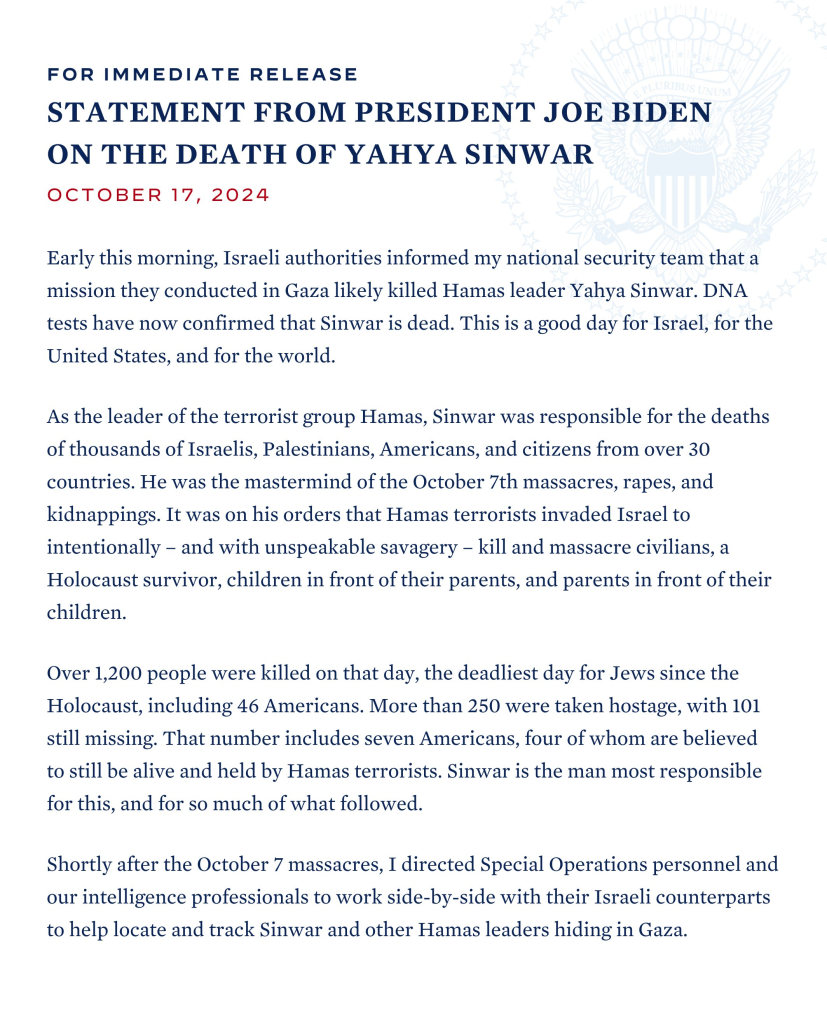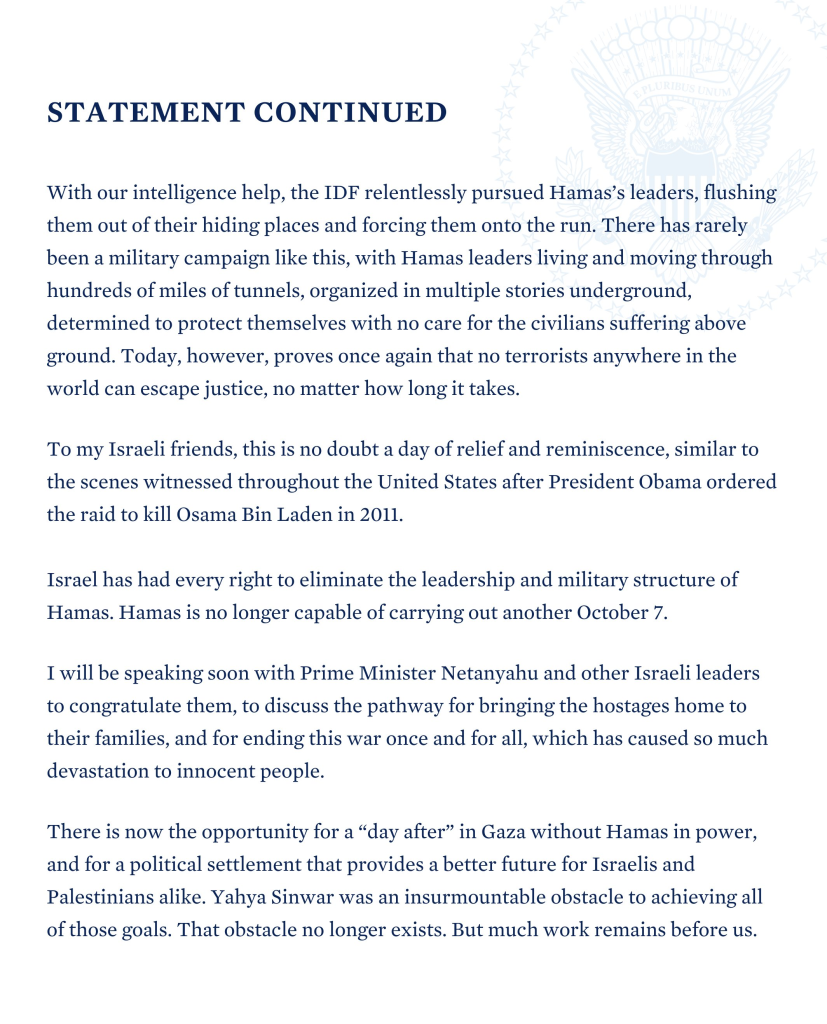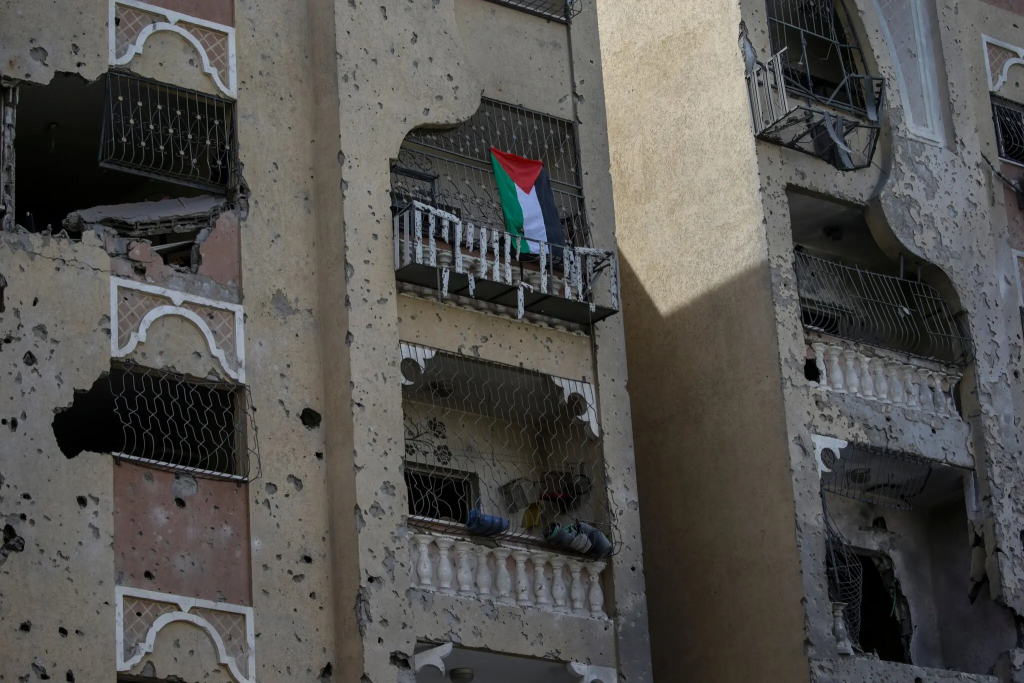Yahya Sinwar: The Mastermind Behind the October 7 Attacks
Yahya Sinwar, who rose to prominence as the leader of Hamas in Gaza, was long considered one of the most dangerous figures in the organization. His death follows a relentless Israeli hunt after he orchestrated the October 7 attacks, in which Hamas militants crossed into southern Israel, killing more than 1,200 people and taking numerous hostages. Sinwar’s military expertise and deep ties with Hamas’ military wing made him a prime target for Israeli forces since the war began.

Israeli Prime Minister Benjamin Netanyahu referred to Sinwar’s killing as “the beginning of the day after Hamas” and emphasized that Israel’s task of dismantling the group is far from over. Netanyahu warned that more Hamas leaders would face elimination if the group continues its attacks and holds hostages.
How Was Yahya Sinwar Killed ?
The operation that led to Yahya Sinwar death occurred in the southern Gaza city of Rafah. Israeli forces, supported by drones, identified Yahya Sinwar body among the rubble of a building targeted by a tank strike. According to Israeli sources, Sinwar’s identity was later confirmed using DNA tests and dental records, ensuring that their most-wanted figure had indeed been eliminated. The Israel Defense Forces (IDF) announced the operation as a significant milestone in their ongoing efforts to neutralize Hamas leadership.
Yahya Sinwar dead has major strategic implications, not just for Hamas but also for the broader Israeli-Palestinian conflict. Many analysts believe that Sinwar’s death could be an opportunity to push forward diplomatic efforts, potentially leading to a ceasefire. U.S. President Joe Biden praised the Israeli operation, expressing hope that Sinwar’s removal could open the door to new negotiations.


For Israel, the elimination of such a high-ranking figure within Hamas is seen as a critical victory. However, the war in Gaza continues, and with Hamas still holding hostages, the conflict is far from over. Families of the hostages have issued urgent pleas, calling for the release of their loved ones in the wake of Sinwar’s death. Netanyahu has echoed these calls, stating that Hamas must release all hostages or face continued military operations.
The Bloody Legacy of Yahya Sinwar
Yahya Sinwar’s rise to power within Hamas was marked by his militant stance and his role in bolstering the group’s military capabilities. A native of Gaza, Sinwar spent more than two decades in Israeli prisons, where he reportedly honed his strategic understanding of his adversaries. He was a driving force behind Hamas‘ armed resistance and was instrumental in establishing its military wing as a dominant force in Gaza.
Designated a global terrorist by the US since 2015, Sinwar was known for his uncompromising views and staunch opposition to any peace process with Israel. His ideology, shaped by years in Israeli prisons, rejected the notion of a two-state solution and called for the destruction of Israel. This hardline stance made him a significant obstacle in efforts toward diplomacy and peaceful resolution of the conflict.
The Impact of Sinwar’s Death
While Sinwar’s death represents a major blow to Hamas, the organization has demonstrated resilience in the past. Hamas has survived the assassinations of numerous leaders, including military figures and political heads. The group’s ability to quickly replace its fallen leaders means that Sinwar’s death, while symbolic, may not mark the end of Hamas’ military or political operations in Gaza.

According to experts, Sinwar’s death might lead to the empowerment of Hamas’ political leadership, particularly those based abroad, such as Khalil al-Hayya and Khaled Mashaal. These figures, who are not currently hiding in Gaza, could now play a more prominent role in negotiations and strategic decision-making for the group.
The killing of Hamas leader Yahya Sinwar by Israeli forces is a significant event in the ongoing Gaza war. Sinwar, a key architect of the October 7 attacks, was one of Israel’s most wanted figures, and his death is seen as a critical victory in the campaign to weaken Hamas. However, the broader conflict shows no signs of abating, and with hostages still in captivity and ongoing military operations, the future remains uncertain.


